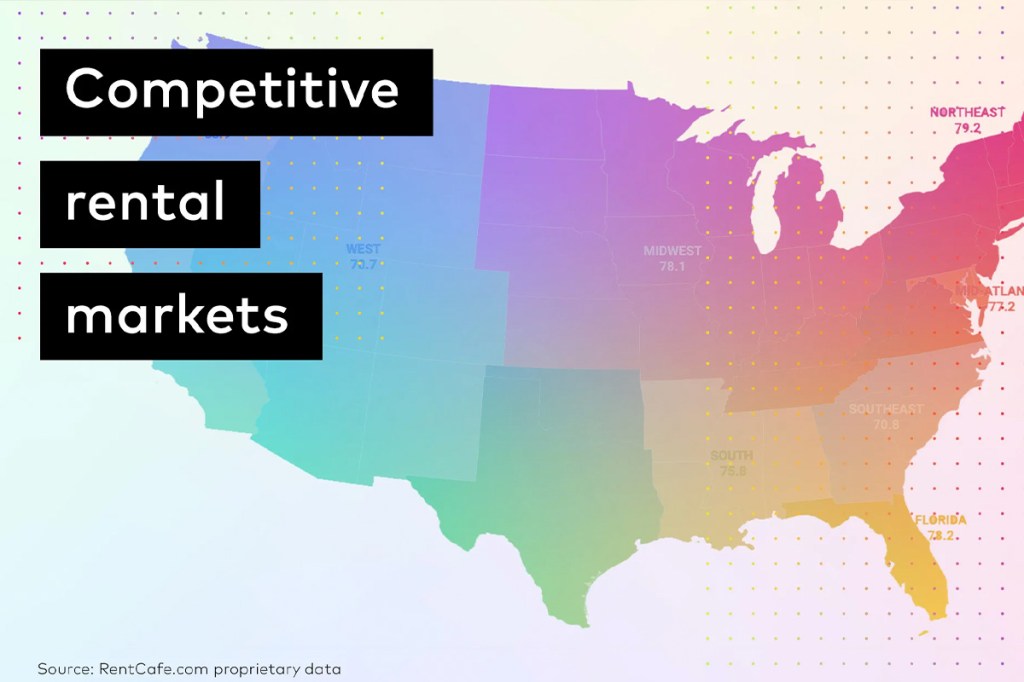
In the world of independent rental owners (IROs), there are a few myths we need to bust. These falsehoods can negatively impact rental property owners who believe them and miss out on the full potential of their businesses.
This article is based off a panel discussion Yardi Vice President Chris Ulep took part in at the National Apartment Association’s (NAA) premier rental housing industry event, Apartmentalize, that took place June 2023. They discussed three myths:
- IROs are all small businesses
- Most IROs are too small to use technology or automation
- IROs cannot impact communities as much as a large rental operators
Myth 1: IROs are all small businesses
Some people believe that all IROs are small businesses. So, let’s look at some stats that bust this myth wide open.
It’s important to remember that the term “independent rental owner” has nothing to do with the size of the portfolio or number of doors. It largely concerns whether you hold an ownership interest and play an active role in property operations. According to NAA, as of May 2023, there are 70,203 individuals and an additional 11,698 companies registered as IROs. Those are impressive numbers!
Data from Yardi Matrix shows that there are over 5,000 owner-managed properties listed as noninstitutional (independently owned and operated). It’s true that the IRO segment does consist of a considerable number of owner-operators with small portfolios. However, the evolution of businesses within this sector shouldn’t be ignored. Many small companies are growing at a rapid pace. Even as partners or investors are brought in, these businesses continue to be managed and operated by the same owners.
Resources for IROs
Regardless of the size, each IRO has unique needs and requirements, and this is where organizations like NAA become crucial. By offering educational resources and support, these bodies contribute to the growth and success of IROs.
Real-world success story
Rob Chiang is founder and CEO of RC Real Estate. He started his journey in property management with one small duplex. Today, his portfolio includes over 400 multifamily and single family units.
Rob’s story mirrors many within the IRO community. His story highlights the growth potential that comes from knowing the community, leaning into technology and being willing to modernize operations. Rob breaks the stereotype of independent rental owners being small-time operators.
Watch Rob Chiang’s full Yardi Breeze review.
Myth 2: IROs are too small to use technology or automation
There’s a stereotype that IROs are technologically behind the curve: they don’t have smartphones, professional websites or digital databases, resort to paper applications, etc. This myth couldn’t be further from the truth. Today’s IROs can — and do — lean into technology.
Portfolio size doesn’t determine tech adoption
Megan Orser is CEO and director of property management at Smart Moves LLC. Hers is a small business with big tech. They boast a modest 15 units to their name currently, but they’re fully cloud-based and heavily reliant on technology. They use QR codes, TikTok and Instagram to attract new business and have devised a free online booking system. Their approach includes offering self-guided tours and utilizing Bluetooth lockboxes for secure access.
Location doesn’t restrict tech use, either
Most of Smart Moves’ properties are located in low-tech, blue-collar communities, but their renters appreciate the convenience of modern technology. They apply, pay rent and submit maintenance requests online. When Smart Moves was even smaller, operating only nine units, it leveraged software to streamline operations and mimic the strategies of larger businesses.
Given recent advances in affordable cloud-based property management software, the tech landscape has transformed. It’s now essential for every IRO, regardless of size, to explore the latest advancements and optimize their operations to meet customer demand and stay competitive.
Examples of creative optimization
The current tech market offers numerous options. For instance, a chatbot can answer customers’ queries without the need for human intervention. Similarly, outsourcing or automating some of your accounting processes can make your operations more efficient without having to add administrators. And contrary to popular belief, you don’t need a massive portfolio or a hefty budget to adopt these features.
There are plenty of other tools that small operators can use. For example, you can offer real-time availability and pricing on your website, just like larger businesses. It’s just as easy to provide online leasing applications and resident screening, collect electronic signatures and let tenants pay rent and submit maintenance requests with a resident app or online portal.
Even small operations can outsource invoice, check scanning and bill pay services if needed. These tools can save you from endless spreadsheets and free up crucial time to interact with your residents.
Watch Megan Orser’s full Yardi Breeze review.
Myth 3: IROs cannot impact communities as much as large rental operators
Who says independent rental owners can’t make a significant impact on their communities? We’re here to set the record straight and highlight the pivotal role IROs play in shaping their neighborhoods and cities.
IROs & community development
IROs often step into areas where larger businesses fear to tread. For instance, areas dealing with property blight can be rejuvenated by IROs who invest in rehabbing or rebuilding properties. Despite the potential financial risk, these projects are led by passionate business owners who believe deeply in their communities.
There are countless stories of IROs transforming neighborhoods that were overlooked by larger operators. By approaching these projects with patience, perseverance and a community-first mindset, IROs can have a significant impact on local development.
IROs & social impact
Independent rental owners have influence that extends beyond physical development. They also contribute to the social fabric of their communities. Some organize veterans’ breakfasts or educate their residents on financial literacy while others offer paid time off to their employees for community service. These initiatives show a commitment to community and a capacity to make an important social impact.
IROs & legislation
Independent rental owners and small business leaders often have a unique connection to local legislation. This allows them to influence policy at the most direct level. They can get involved in local politics or actively engage with their representatives.
In this way, IROs can advocate for their communities, especially in areas that are often overlooked by larger entities. By sharing their stories and illustrating the positive changes they’ve made, IROs can become major drivers of change in their communities.
IROs & suppliers
Many IROs impact their communities by establishing relationships with suppliers. Suppliers play an integral role in the rental industry, and their involvement can boost the industry’s reputation. Suppliers and business owners who invest in social responsibility can make a significant difference at the local level.
Seeing IROs in a new light
Hopefully, we helped set the record straight. Independent rental owners aren’t just “small fish” in the housing market. In fact, they’re rapidly embracing technology and automation, making operations smarter and more efficient. They often bring a unique, personal touch as well as local connections that make their communities feel more like home.
And that’s the truth about IROs.



